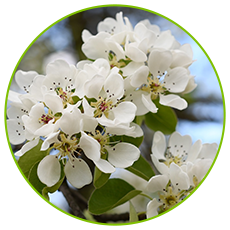Jul . 27, 2024 11:19 Back to list
Nutritional Benefits of Plum Pollen and Insights into Its Production and Uses in Food Industry
The Nutritional Benefits of Plum Pollen A Comprehensive Overview
In recent years, the exploration of natural supplements has led to increased interest in various pollen types, with plum pollen emerging as a noteworthy contender. While many people are familiar with the nutritional benefits of fruits and vegetables, pollen, particularly from flowering plants, is often overlooked. Plum pollen not only serves as a vital food source for bees but also offers a range of health benefits for humans. This article delves into the nutritional facts and potential health advantages of plum pollen.
Rich in Nutritional Components
Plum pollen is a powerhouse of nutrition. It contains essential vitamins, minerals, and phytochemicals that are beneficial for overall health. Key components found in plum pollen include vitamins A, B, C, and E, as well as a variety of amino acids, fatty acids, and carbohydrates. These nutrients play crucial roles in bodily functions—ranging from boosting the immune system to promoting skin health. Vitamin C, for example, is well-known for its antioxidant properties and its ability to enhance collagen production, which is vital for maintaining skin elasticity.
Antioxidant Properties
One of the standout features of plum pollen is its rich antioxidant content. Antioxidants are compounds that help protect the body from oxidative stress caused by free radicals. Excessive oxidative stress is linked to various chronic diseases, including heart disease, cancer, and aging. By incorporating plum pollen into the diet, individuals can bolster their antioxidant defenses, potentially reducing the risk of such conditions.
Anti-Inflammatory Benefits
Chronic inflammation is another underlying factor in numerous health problems. Studies suggest that plum pollen may possess anti-inflammatory properties, making it a valuable addition to an anti-inflammatory diet. The ability of plum pollen to reduce inflammation can be particularly beneficial for individuals suffering from conditions like arthritis or other inflammation-related diseases. By modulating the body's inflammatory response, plum pollen may help alleviate pain and improve quality of life.
plum pollen nutrition factories

Boosting Energy and Stamina
For those seeking natural energy boosters, plum pollen may be an effective option. The nutritional composition of plum pollen provides a balanced source of carbohydrates and proteins, which can enhance stamina and reduce fatigue. Athletes and active individuals may find plum pollen beneficial, as it aids in recovery after workouts by replenishing nutrients lost during physical activity.
Support for Digestive Health
Plum pollen also contributes to digestive health. It contains dietary fiber, which is essential for maintaining a healthy digestive system. Fiber aids in regular bowel movements and supports the growth of beneficial gut bacteria. A healthy gut microbiome plays a crucial role in overall health, influencing immune function, metabolism, and even mental health.
How to Incorporate Plum Pollen into Your Diet
Incorporating plum pollen into your diet can be straightforward and versatile. It can be consumed in various forms, including as a powder, capsules, or as an ingredient in smoothies and granola. Adding plum pollen to dishes not only enhances nutritional value but can also contribute a unique flavor profile.
Conclusion
In conclusion, plum pollen stands out as a nutritional powerhouse with a myriad of health benefits. Its rich content of vitamins, antioxidants, and anti-inflammatory properties makes it an excellent candidate for those looking to enhance their diet naturally. As with any supplement, it's essential to consult with a healthcare provider, especially for individuals with allergies or specific health concerns. Embracing the natural gifts of plum pollen could lead to improved health and wellness for those who explore its potential benefits.
-
Pollen Peach Tree for Pure Pollination and High-Quality Peach Pollen
NewsJul.30,2025
-
Premium Cherry Pollen for Pure Pollination & Different Types
NewsJul.30,2025
-
Artificial Pollination Solutions for Various Plant Pollen Types
NewsJul.29,2025
-
Artificial Pollination Solutions for All Plant Pollen Types
NewsJul.29,2025
-
Premium Plant Pollen for Pure Pollination & Pollen Block Solutions
NewsJul.29,2025
-
Artificial Pollination Solutions for Efficient Crop Yields
NewsJul.28,2025